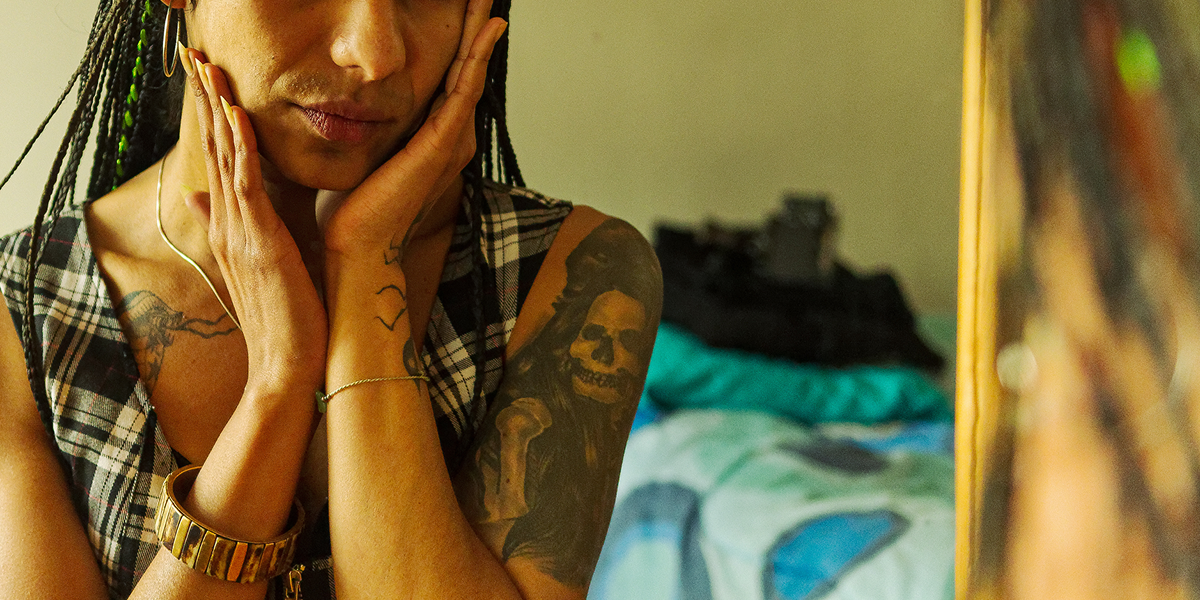“Okay, we’ll start by having her walk across the room a few times, and just call out what you see.”
I’d agreed to be their guinea pig as a favor. My friend, a physical therapist, asked me to come in for Patient Day, when aspiring PTs at her alma mater rack up hands-on experience. I figured I’d learn some new exercises, refresh the old ones, and walk away with a $20 Target card for my trouble.
Instead, I got sized up:
“Increased anterior pelvic tilt.”
“Shortened hip flexors.”
“Decreased lumbar lordosis.”
I’m no stranger to this language; cerebral palsy makes sure of that. I knew that my hip flexors were tight before I knew where they were. I’ve learned more about the angle of my pelvis than should ever be required outside of yoga. Certain spots on my body always inspire the same discussions. And that’s the thing I’ve found about medicine — it has a pretty limited vocabulary.
There are few relationships more tangled than the one between disabled people and doctors. Their diagnosis welcomes you to the club, provides terminology for what’s going on, and confirms that it’s not a benign variation like red hair or even nearsightedness. They determine that Something Must Be Done. And if you have the resources, they do it: point the way to specialists, recommend assistive technology, cut you open to add reinforcements, and monitor your disability’s development alongside yours. They are the gatekeepers to this label and to the tools that can help you wear it.
It’s tempting to believe that’s enough. Thinking of disabilities as medical conditions makes them easier to digest; it puts the doctors in charge and lets everyone keep assuming that life with a disability is horrible, or at least something no one would want. (If you doubt that’s how we’re supposed to feel, let me direct you to the total strangers who’ve told me “if I were you, I would have killed myself!”… as a compliment.) But that understanding is a conscious choice. Disability can also be an identity, and as I’ve grown into mine — made it a Thing About Me rather than a Thing That Happened to My Body — I’ve sensed an ideological gap forming between me and my doctors. I fell right into that gap on Patient Day. It reminded me that, as a disabled woman, I can’t enter any medical environment assuming I’ll be understood, protected, or even told that I’m fine. I have to go in with my guard up every time. And that’s coming from me — white, insured, ambulatory, independent, employed. The kind of disabled person we like in America.
“Just call out what you see.” That was their assignment. But they only gave one kind of answer. You know what else they could have said? “She walks unassisted.” “Her pace is consistent.” “She gets around pretty well.” But they weren’t interested in what they saw; they were interested in what they saw wrong.
“Increased,” “shortened,” “decreased” — they all compare me to something. But they also offer a clue to bridging that gap.
I’m sure that, somewhere in my medical record, my doctor has noted that I am gay. Maybe she scribbled it in a margin, maybe it’s as clinical as a checkbox that says “Orientation: Homosexual.” I don’t know. But I can guarantee that she didn’t write down “Increased Homosexual Attraction,” “Shortened Patience for the Male Species” (though I do also have that), or “Decreased Heterosexuality.” My sexuality gets to stand on its own and doesn’t have to prove its legitimacy in relation to something else. Obviously that hasn’t always been so (and still isn’t for far too many people). But hearing my particular brand of queerness emerge from the medicalization shadows reminds me that language really does move the needle. And we haven’t quite gotten there with disabilities yet. People are still most comfortable discussing my disability as a deficiency — I can do things “anyway,” or “despite it.” And that goes double in medical circles, because then you start seeing words like “normal” and “abnormal,” “lowered fine motor function” (lowered from where?) or, my personal favorite, the assurance that my “case” is “mild.”
If there’s one thing I wish I could tell every medical professional who’s worked on me (and they are legion), it’s this: please don’t assume I want to be able-bodied. I know it’s easy to vilify cerebral palsy when you don’t have it. And actually, it’s even easier when you do, because the rumors are true: it’s exhausting, frustrating, cumbersome, and expensive. It’s also right up there with my gender and sexuality in terms of what colors my world. It is a key component of my personhood. I don’t know what life is like without it and don’t plan on finding out. I get that able bodies are the gold standard; the rest of the world makes that perfectly clear. But when I’m in your office or lab, you can at least make mine feel welcome. And saying that my muscles are “weaker than we’d expected” or telling your students “I don’t think she’ll be able to do this” when I am right in front of you isn’t being scientific or objective — it’s assigning value to the way I exist. It’s measuring me against standards I will never understand, a body I will never have, and a person I will never be.
Forming new habits isn’t easy, especially when your entire profession runs on a highly specialized vocabulary — but you know what else isn’t easy? Listening to how “abnormal” my body is. So, my dear physician/surgeon/physical therapist/orthotist/gynecologist/neurologist, maybe instead of “decreased anterior pelvic tilt,” you can say “you lean forward when you walk.” That’s just true — no comparison or implication that I should be some other way. And if you want me to work on it, you can explain that “eventually, that might get tiring for your knees.” Make it about helping my body thrive and maximizing the opportunities I’ll have. That — rather than measuring it against an ideal that’s never been a reality to me — is quality of life.
When I went back to work with another PT class recently, they tailored their advice to my commute, which involves walking to the train and taking a lot of stairs. Every exercise I did related to how I move every day. They grounded my tasks in my lived experience. Did they slip into medicalese? Sometimes. But they also listened, didn’t mind getting called out, and understood that I am a person — not a class assignment, a case to be solved, or damage that needs fixing. They met me where I am.
I’ve thought a lot about what ideal doctor’s appointments would look like, which means figuring out what I’m not getting from them now. And I feel like we’re ignoring a crucial truth: that the doctor/patient relationship is an intimate one. We like to save intimacy for romance or sex, as if it’s too embarrassing or risky to express elsewhere. But medical professionals enjoy unrivaled access to our bodies. Not even the people we sleep with get to know what they know. They can literally see inside of us, any part they like. What’s more intimate than that? Our charts might look inscrutable and sterile, but they’re really detailed portraits, maps of our development that tell us what we can’t see and help predict where we’ll go. And the ideal appointment would acknowledge that. Trust, clarity, and communication would be shared values — not just onuses on me as the patient. I would know my doctor was on my team. I would have time to ask questions and get detailed answers. I would feel cared for rather than evaluated. Identity would coexist with diagnosis. And that, I think, would bridge the gap.







